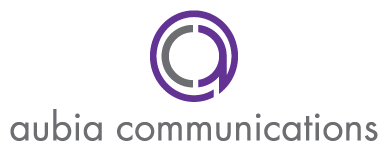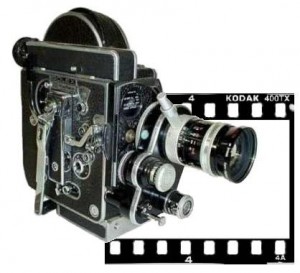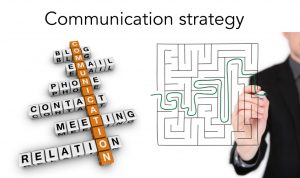Working with Public Relations professionals is a smart way to improve your business. However, we PR folks have our characteristics that clients may not always appreciate. Like all professionals, PR practitioners have their own jargon and methods to get the best results, and it’s important to understand what’s behind those idiosyncrasies to get the most out of your working relationship.
The first thing I do when I meet with clients is explain what Public Relations is and isn’t. It always stuns me what people think I do (“So, you’ll put an ad in the newspaper?) versus what I really do (“We’re going to determine your reputation among your target audiences.”). After this short brief on PR, I ask what the client wants to achieve. What are their goals? Why did they turn to PR?
When working with PR practitioners, don’t be afraid to tell us exactly what you want. We will let you know, based on our expertise, what we believe to be possible and what we don’t. Don’t be afraid to ask questions and lots of them. If you don’t understand why we’re advising against a particular tactic, make us explain why. It is our job to help you understand the best strategies to build relationships with target audiences you depend on for success.
Talk the PR talk
 After learning what it is my clients are looking for from PR, I begin to lay out an approach to meet the need, explaining how the process will work and what results I expect. Once we’ve agreed on a course of action, then the work begins.
After learning what it is my clients are looking for from PR, I begin to lay out an approach to meet the need, explaining how the process will work and what results I expect. Once we’ve agreed on a course of action, then the work begins.
Throughout the working relationship, clients can sometimes not quite understand what and why certain PR strategies are being used. The following questions can help clear up some of that confusion.
1. Why are relationships so important?
I’m sure some clients might get sick of hearing “relationships, relationships, relationships” from PR practitioners, but in our business, we can’t stress it enough. Think about it – the last time you asked a friend for a plumber recommendation, did he say there was a great plumber’s ad in the Yellow Pages? No, he told you about a great plumber who always showed up early for the job, got it done right the first time, and is affordable. That great plumber built a relationship with your friend, and now your friend is only too happy to recommend him. Relationship building is the name of the game in PR, and we will continue to yell it from the mountain tops for all to hear.
2. What do you mean by “strategic communications”?
Too many have created a buzz word of “strategic communications.” I’ve actually had clients who’ve asked me if I could “sprinkle strategic communications on” an issue. Strategic communications, when done correctly, is neither a buzz word to make PR professionals look smarter nor can it just be “sprinkled” on a problem. It is a method of researching the need, providing hard data to determine what the real issue is, identifying and segmenting the audiences you need to reach, developing objectives that will move you toward accomplishing your overall goal, creating a plan to meet these objectives with each audience, implementing tactics with proven success, and then evaluating how effective your efforts were with solid metrics that measure what matters. This method provides the best results for actually creating relationships and engaging your target audience to achieve your business objectives.
3. Why are PR professionals always talking about social media?
A family member told me the other day that every story I tell starts with “I saw on Facebook.” I didn’t realize until then just how much information I glean from online. PR professionals are constantly working to stay on top of the latest news and trends. With more and more stories breaking on social media platforms, this is how we’re staying ahead of the curve; staying in the know puts us in the best position to assist our clients with their PR needs.
We also stress the importance of building those ever-so-important relationships through social media. With emarketer estimating 1.43 billion people logging onto a social network in 2012, these platforms are a great resource in reaching target audiences in the spaces where they frequent. However, not all social media platforms are made equal. Your PR consultant can help you determine which one is best for your business.
4. Why can’t we just say “no comment”?
If you want to see PR practitioners cringe, just show them a clip of a media interview with someone saying “no comment” or any other form of refusing to talk to the media. Saying “no comment” just makes you look automatically guilty or that you are hiding something. You also lose any ability to tell your side of the story when you use this damaging phrase.
In my own work, I don’t identify the media as an audience, but as a tool to communicate with your target audience. You cannot build relationships with either your audience or with the media members who help you reach them without being open and honest during interviews. This also means sharing the good with the bad. If you expect the media to cover your positive stories, you also must be willing to let journalists in when things aren’t going so well.
In very rare instances, mainly in legally-binding cases, will a PR professional advise against full and open disclosure to the media. If you can’t answer a question, let the journalist know why you can’t speak to a certain topic and what you can discuss.
5. Can you spin this into something good?
NO! Another cringe-worthy statement for PR practitioners – spin. We don’t ethically spin, embellish, fluff-up, doublespeak or any other way lie to do our job of helping clients put their best foot forward. If your company is planning a massive layoff due to budget cuts, we are not going to release a statement saying you’re right-sizing the company to meet future goals. We’re going to say that due to budget cuts, a layoff is planned affecting an estimated amount of employees, and (after encouraging you to do so) the company is providing career counselors to help those affected employees to find future employment as part of the severance package. Spinning an issue to make it look better is not going to help you build relationships with your audience – they will see right through what you’re doing, and you will lose any credibility.
What other verbiage or tactic has your PR consultant used that you found confusing?
photo credit: inlinguaManchester via photo pin



